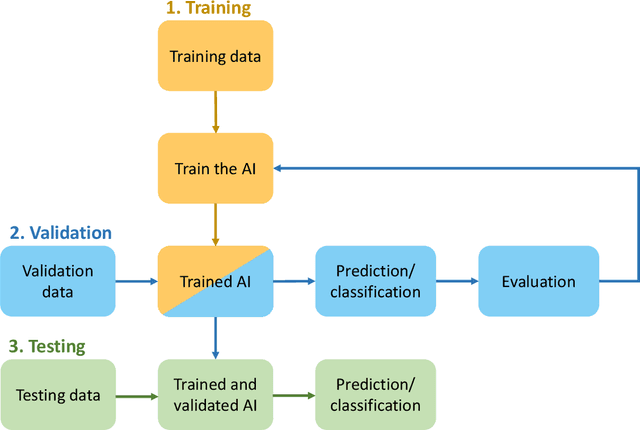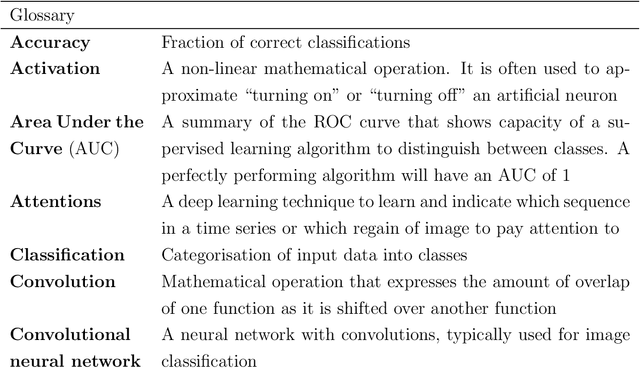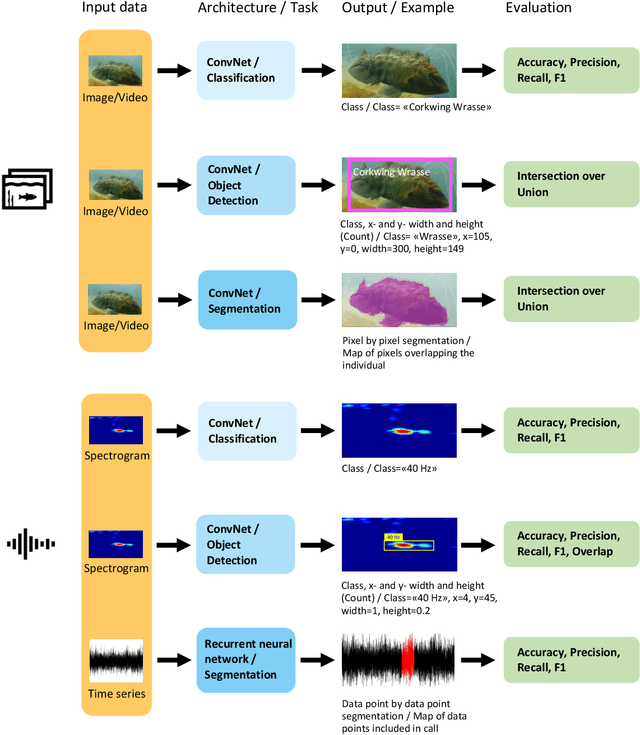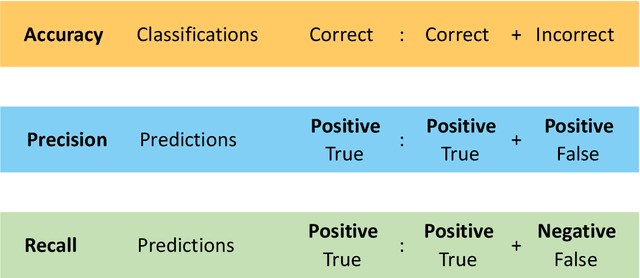Kim Tallaksen Halvorsen
A contrastive learning approach for individual re-identification in a wild fish population
Jan 02, 2023



Abstract:In both terrestrial and marine ecology, physical tagging is a frequently used method to study population dynamics and behavior. However, such tagging techniques are increasingly being replaced by individual re-identification using image analysis. This paper introduces a contrastive learning-based model for identifying individuals. The model uses the first parts of the Inception v3 network, supported by a projection head, and we use contrastive learning to find similar or dissimilar image pairs from a collection of uniform photographs. We apply this technique for corkwing wrasse, Symphodus melops, an ecologically and commercially important fish species. Photos are taken during repeated catches of the same individuals from a wild population, where the intervals between individual sightings might range from a few days to several years. Our model achieves a one-shot accuracy of 0.35, a 5-shot accuracy of 0.56, and a 100-shot accuracy of 0.88, on our dataset.
Unlocking the potential of deep learning for marine ecology: overview, applications, and outlook
Sep 29, 2021



Abstract:The deep learning revolution is touching all scientific disciplines and corners of our lives as a means of harnessing the power of big data. Marine ecology is no exception. These new methods provide analysis of data from sensors, cameras, and acoustic recorders, even in real time, in ways that are reproducible and rapid. Off-the-shelf algorithms can find, count, and classify species from digital images or video and detect cryptic patterns in noisy data. Using these opportunities requires collaboration across ecological and data science disciplines, which can be challenging to initiate. To facilitate these collaborations and promote the use of deep learning towards ecosystem-based management of the sea, this paper aims to bridge the gap between marine ecologists and computer scientists. We provide insight into popular deep learning approaches for ecological data analysis in plain language, focusing on the techniques of supervised learning with deep neural networks, and illustrate challenges and opportunities through established and emerging applications of deep learning to marine ecology. We use established and future-looking case studies on plankton, fishes, marine mammals, pollution, and nutrient cycling that involve object detection, classification, tracking, and segmentation of visualized data. We conclude with a broad outlook of the field's opportunities and challenges, including potential technological advances and issues with managing complex data sets.
 Add to Chrome
Add to Chrome Add to Firefox
Add to Firefox Add to Edge
Add to Edge